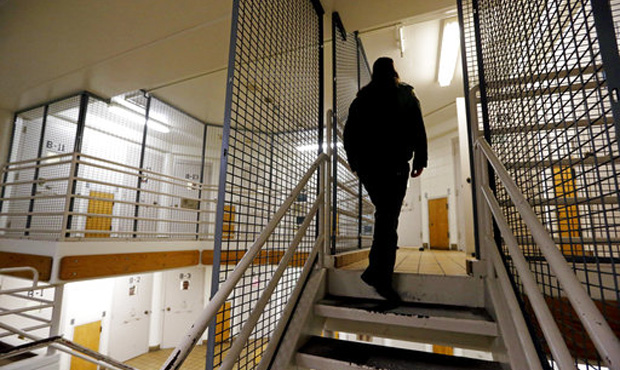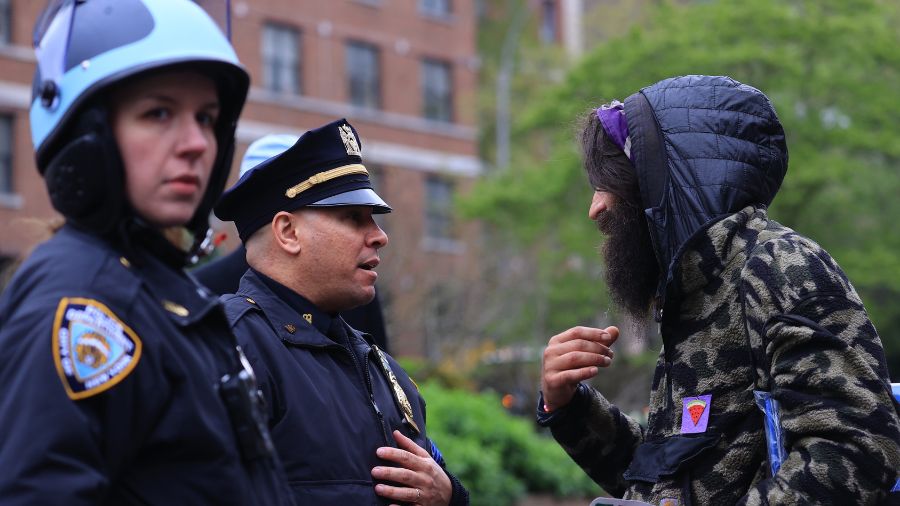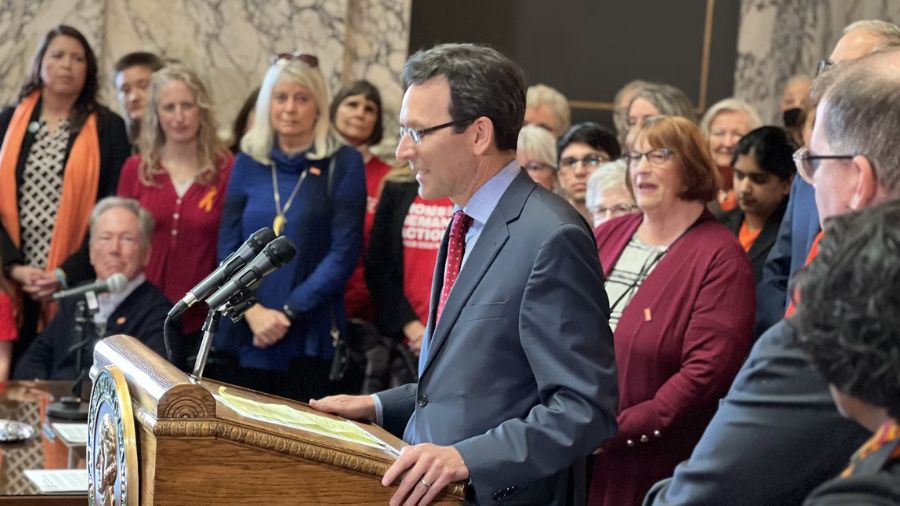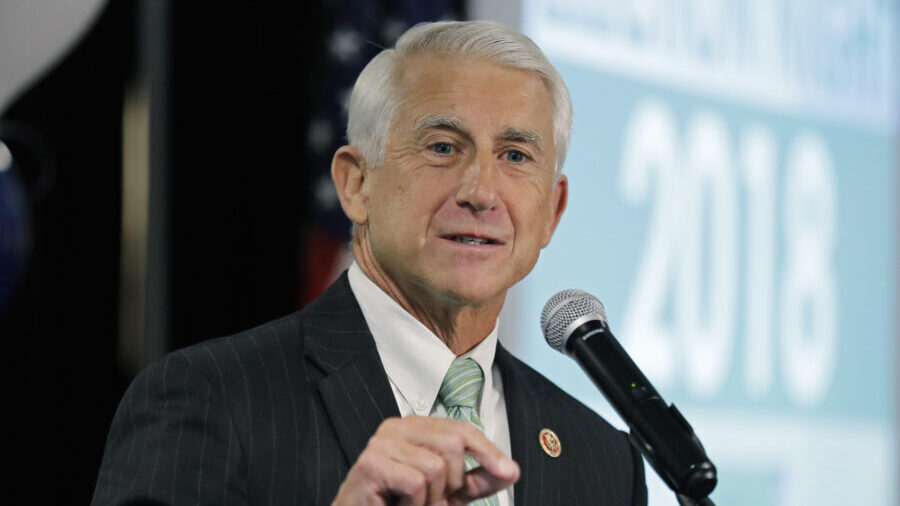Rantz: WA budget savings proposal aims to release prisoners — regardless of crime
Sep 22, 2020, 7:29 PM | Updated: Sep 23, 2020, 8:30 pm

(AP file photo)
(AP file photo)
The Washington State Department of Corrections aims to lower the prison population by 30%. How? The plan includes releasing criminals early from their sentence — regardless of their crimes. What’s more, criminals convicted of non-violent crime would see little to no time in jail.
This is being done as a cost-saving measure.
“I got to tell you, it’s kind of exciting,” DOC secretary Stephen Sinclair told The Seattle Times.
But the move comes across as the DOC taking advantage of a coronavirus-related budget crisis. In doing so, they forward fringe political positions that argue prison is not an effective tool at addressing criminal behavior. It’s why activists are pleased with the move.
Releasing criminals — including rapists and murderers
Facing calls by Governor Jay Inslee’s administration to cut their budget by 15%, a DOC strategy document says “there must be a significant and permanent reduction in prison population.”
To that end, DOC highlighted a number of programs and legislation to adopt that would release prisoners and save money.
The first proposal, if adopted by the legislature, would allow prisoners “with approved housing plans, regardless of offense or sentence type, to serve the final 150 days of their sentence in partial confinement on electronic home monitoring.” Remarkably, the DOC claims this will “support best practices for community safety and decreased recidivism.”
Serving time for rape or manslaughter? The DOC will have you be released early, so long as you have a place to stay, because it could save the state some money. It doesn’t matter if they might take advantage of the 150 days they’ve been spared to recommit a crime, so long as there’s a cost-savings associated with the move.
Rantz: As crimes surge, Seattle politicians to cut felony arrests, defund sheriff’s department
No jail for you!
Whereas the DOC looks to release criminals early, in one proposal, they don’t want criminals to serve time at all. Washington already is below the national average on criminals serving prison time.
Criminals guilty of property or drug crimes, or anything non-violent and non-sexual, would serve “little, to no time in a prison facility.” The DOC strategy document says it would allow criminals “to serve all but 120 days of their sentence in partial confinement on electronic home monitoring.” This appears to include prolific offenders who spend much of their time reoffending when not behind bars.
Continuing its proposal for Washington to be even more light on crime, the DOC also wants prisoners to earn 50% “earned time” (up from 33%) for good behavior. Though in this case, if the prisoner is a violent or sexual offender, they would not be eligible for being good. They’d just be rewarded with 150 days off their sentence.
Use a weapon? No extra punishment
While Washington Democrats aim to ban certain guns, the DOC argues we should be going lighter on criminals who use the very weapons that made their crimes more dangerous.
The document explains:
Currently, if an offender has a weapon enhancement on one or more counts, the enhancement(s) are served consecutive to one another and consecutive to the underlying sentence. The current law does not allow offenders to receive any earned time for the weapon enhancement portion of an offender’s sentence, but does allow earned time on the underlying sentence.
This proposal would allow earned time on an offender’s entire sentence, not just a portion of the sentence. The rate of time earned for the enhancement portion would be consistent to the rate allowed for the underlying sentence.
The list offers several other programs. According to a memo, cited by The Seattle Times, these proposals would reduce the prison population by 30%.
Activists rejoice, but what about victims?
Progressive activists that view the prison system as racist are presumably as happy with the proposals as the criminals who would benefit.
“What used to be an adversary is now an ally,” Gerald Hankerson, president of the NAACP’s Alaska-Oregon-Washington State Conference, told the Times of the DOC.
And Tarra Simmons, director of the Civil Survival Project, called this a “transformational moment.”
Perhaps less excited are the criminal’s victims, their lives permanently changed with scars that may never heal. But this DOC, acting more political than ever, doesn’t seem phased.
It’s already near impossible to see significant jail time for many offenders. It’s why Seattle, in particular, suffers such a dramatic prolific offender problem. But, releasing criminals early has already been tried and has led to tragic results.
In just the last several months, there have been high profile examples of prisoners recommitting after being released early due to coronavirus policies. A suspect in a recent hit-and-run that killed a Whidbey Island man had been released early from jail due to coronavirus. He was in jail awaiting charges on a separate hit-and-run.
Can these programs get legislative approval?
It remains unclear which of the proposals, if any, get approval from the state legislature. These are controversial and none of the Democrats will have to vote on these issues before Nov. 3, as Inslee has stubbornly refused a much-needed special session to avoid Democrats being put in positions where they’d have to take votes supporting the will of the people.
Still, with a Democratic majority that votes and talks like they represent Seattle more than their own districts, much of the proposals could very easily become a reality. State Rep. Roger Goodman (D-Kirkland) already plans to introduce a bill to lessen weapons enhancement sentencing.
Will other Democrats follow? Seems likely. Let that serve as a reminder of what’s at stake in November.
Listen to the Jason Rantz Show weekday afternoons from 3-6 p.m. on KTTH 770 AM (or HD Radio 97.3 FM HD-Channel 3). Subscribe to the podcast here. Follow @JasonRantz on Twitter and Instagram or like me on Facebook.














